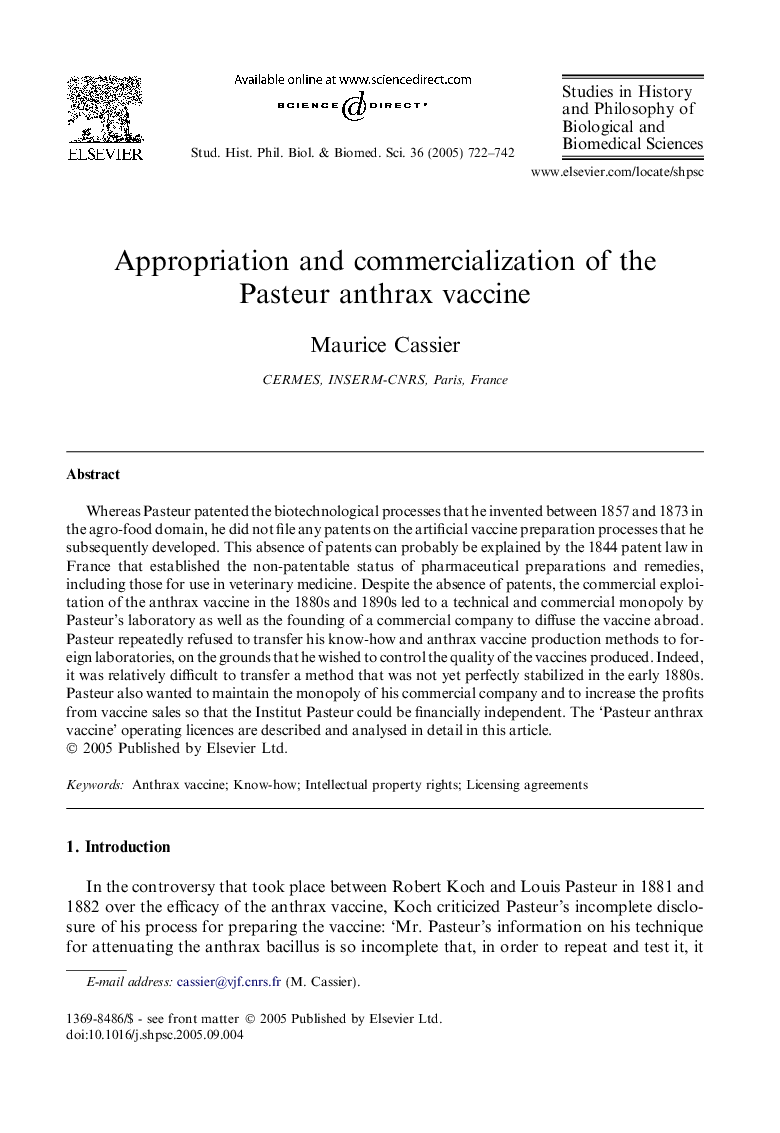| Article ID | Journal | Published Year | Pages | File Type |
|---|---|---|---|---|
| 9743071 | Studies in History and Philosophy of Science Part C: Studies in History and Philosophy of Biological and Biomedical Sciences | 2005 | 21 Pages |
Abstract
Whereas Pasteur patented the biotechnological processes that he invented between 1857 and 1873 in the agro-food domain, he did not file any patents on the artificial vaccine preparation processes that he subsequently developed. This absence of patents can probably be explained by the 1844 patent law in France that established the non-patentable status of pharmaceutical preparations and remedies, including those for use in veterinary medicine. Despite the absence of patents, the commercial exploitation of the anthrax vaccine in the 1880s and 1890s led to a technical and commercial monopoly by Pasteur's laboratory as well as the founding of a commercial company to diffuse the vaccine abroad. Pasteur repeatedly refused to transfer his know-how and anthrax vaccine production methods to foreign laboratories, on the grounds that he wished to control the quality of the vaccines produced. Indeed, it was relatively difficult to transfer a method that was not yet perfectly stabilized in the early 1880s. Pasteur also wanted to maintain the monopoly of his commercial company and to increase the profits from vaccine sales so that the Institut Pasteur could be financially independent. The 'Pasteur anthrax vaccine' operating licences are described and analysed in detail in this article.
Related Topics
Life Sciences
Agricultural and Biological Sciences
Agricultural and Biological Sciences (General)
Authors
Maurice Cassier,
